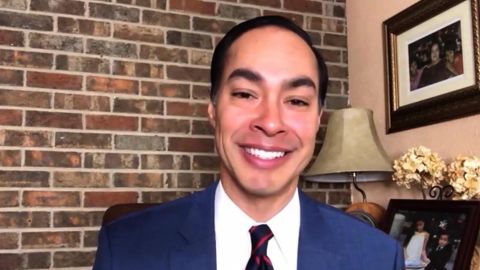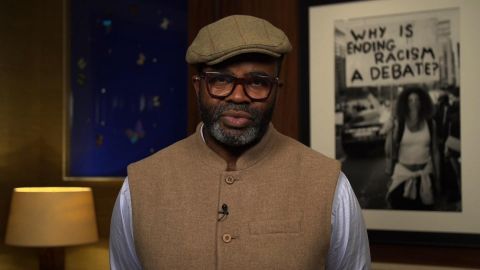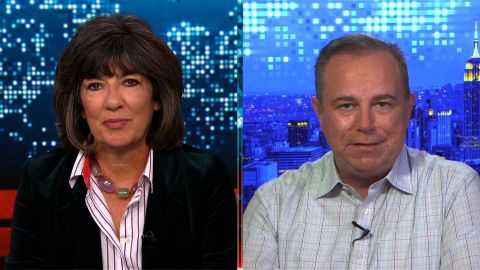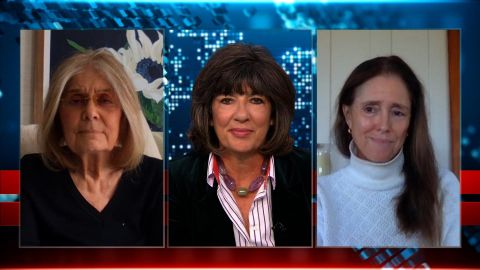Read Transcript EXPAND
CHRISTIANE AMANPOUR: Tell me about — you saw that placard, the woman carrying that placard with that statement. What about it grabbed you?
MISAN HARRIMAN, PHOTOGRAPHER: I think the question itself asks all of us to take a bird’s-eye view on why we haven’t asked that question sooner, and, also, perversely, why we need to still ask that question. Darcy Bourne, the lady holding the sign, who is an elite athlete and a hockey player for England, who’s just started at Duke University, was holding that sign. The paint was still drying, as you can see in the image. And our paths crossed, and history was made. It has an emotional reaction, where people really think about how they can make sure we never need to ask that question in the future.
AMANPOUR: And, personally, you’re making all sorts of history with your photography and where you are this moment in this uprising for racial justice. What do you think now, several months after it began? And I guess, what do you think about there being one Black History Month per year?
HARRIMAN: Well, I think, like Pride and many of these months that happen, I live it. And I think this is to remind people that don’t have that lived experience that they should have empathy in their hearts to think outside of who they are. So, I don’t think Black History Month necessarily has been looked at by people that are non-black in the way that it’s beginning to be done now. And that’s important, because if you live the experience, like me and other people that look like me, we know what we have been through. We know what our open wounds are. But Black History Month is for others to also learn about our lived experience, so they can understand how they can help fight, eradicate racism.
AMANPOUR: And do you think that these last few months have really cemented that? Do you think, from everything you’re seeing, people you’re talking to, that there has been some change in this imbalance?
HARRIMAN: Oh. Oh, yes. I mean, there’s no going back. My parents and their parents’ generation never had that collective voice. It was always a whisper, because this thing that we all live with called the Internet wasn’t there. Now we know that there are millions of people from all walks of life and from all races that are coming together to make sure that the ills of our past will not be repeated in the future. And by doing that, we are trying to fix our present. And, without question, I am seeing that in every aspect of my daily life, whether it’s the children I’m mentoring, whether it is my friends that are taking time to understand the history of the prison industrial complex, or in how the civil justice system has been skewed the wrong way. That is happening at a scale that I have never seen before in my lifetime.
About This Episode EXPAND
Christiane speaks with Gloria Steinem and Julie Taymor about “The Glorias.” Walter Isaacson speaks with Julián Castro about the election. President Trump’s friend Christopher Ruddy gives his take on the debate. Photographer Misan Harriman explains the significance of Black History Month in the UK and why he’s auctioning off his historic British Vogue cover image for charity.
LEARN MORE



